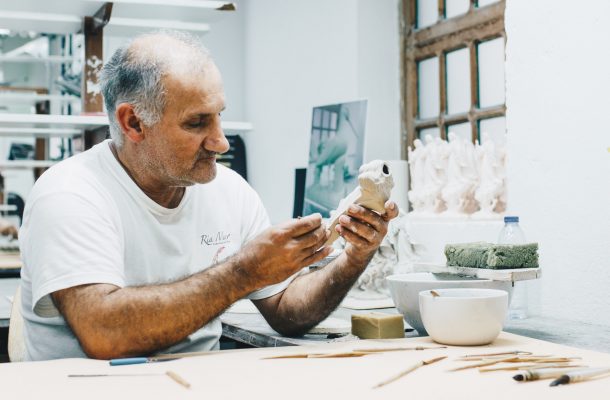Defusing the retirement time bomb

We are all living longer. For the first time in history there are now more people over the age of 65 than under the age of 5 across the globe. Fertility rates are near or below replacement levels across the globe except for Africa, while in Australia 15% of the population is over 65 and within less than half a generation almost 25% will be over 65!
Governments are struggling to meet the increased financial burden of an aging population. And, employers will have to get serious about hiring older workers for meaningful jobs because there simply won’t be enough young people to do the work.
Retirees, who only fifty years ago might have expected only a few years in retirement, can now anticipate nearly two decades of retirement. That’s a long time to keep active, engaged and busy, mentally and physically fit, happy and fulfilled. They need to know how to do it. It is not easy.
Over the past two decades a great deal of research has been conducted to help retirees best position themselves to enjoy a long and happy retirement, to stay physically and mentally fit, to help government set policies to support the aging population, and to help employers attract older workers as the ‘young’ workforce declines in numbers.
We now know what makes for a happy retirement. And we can predict those who will best make the transition to retirement. We don’t have to guess or assume. We know. We have a checklist.
This is great news.
But there is a lot of work to be done.
We know that up to 50% of retirees are, to varying degrees, disappointed with their retirement, that 28% preferred their pre-retirement life and that nearly one in three cope poorly with their transition to retirement. We know that an unhappy retirement leads to poor health outcomes, higher divorce rates and a reduced life span, and we also know that many people approaching retirement are unrealistic about it.
Retirement is no state of nirvana. It requires lots of preparation and ongoing work. Retirement is a major life transition. Right up there with divorce, job loss and the death of a loved one. And yet as sociologist Phyllis Moen suggests, “people spend more time planning a wedding than planning (preparing for) retirement.”
Retirement is a very big deal. People who are happiest are well prepared for it, realistic about it, and work hard at it.
Research on Retirement
Let’s take a look at some of the research.
The Nationwide Retirement Institute has found that for roughly a quarter of retirees, life after work involves isolation and a loss of direction.
The Canadian Journal of Counselling and Psychotherapy concluded that more than a third of retirees adjust poorly to retirement. In Australia that is almost one million people. In the USA over 10 million and in the UK, over 4 million.
The Centres for Disease Control and Prevention found that retired men were 40% more likely than employed men to experience depression.
Whilst many think money is the most important factor in retirement happiness, it is not the only one. The other big three factors according to research conducted by Asebedo and Seay are positive psychology, strong family relationships and a retirement life that has meaning and purpose.
The American Time Use Survey conducted by the US Bureau of Labor Statistics found that most people fail to use their retirement to ‘live their dream’. Instead, 57% of extra retirement time is spent watching TV, and the amount of time spent outside the house doesn’t change.
The Centre for Retirement Research at Boston College finds that continuing to do some form of meaningful work in retirement is a big factor in retirement happiness and overall health. Whilst the majority of retirees would work if they could find the ‘right’ job, they are typically not willing to give up their retirement lifestyle to do so. They will not for example give up time with their grandchildren on Fridays, to work. Whilst in future employers will need to cater for these specific retiree needs in order to find staff, currently they do not. Retirees are shut out of meaningful work.
My organisation, GoRetirement is currently working with government and other stakeholders to try and build more flexibility into the job market to encourage skilled retirees back into the workforce.
Government also want retirees back in the workforce as the cost of supporting a growing retiree population is crippling. Retirement without work leads to a 5-16 percent increase in difficulties associated with mobility and daily activities, a 5-6 percent increase in illness conditions, and 6-9 percent decline in mental health, over an average post-retirement period of six years.
And, if you want to know how well you are likely to do in retirement, then peer research conducted by John W. Osborne at the University of Alberta, might help. Osborne concluded that optimists and extraverts, those with good family relationships, a strong personal identity, diversified interests, a broad social network and involvement in meaningful activities other than work are likely to have the best transition to retirement.
We can use this research to help build a ‘healthy’ retiree population, full of retirees that stay physically and emotionally fit, connected, productive and fulfilled. Healthy retirees reduce the burden on government. Healthy retirees can work longer and are more productive. Healthy retirees remain active consumers. Everyone benefits from a healthy retiree population – the retiree, government and business.
But we are not doing enough.
Retirees are poorly prepared for retirement and often unhappy in it. Employers don’t offer meaningful work to retirees. Government agencies still position themselves too late in the retirement chain. They don’t see it as their role to help build a healthy retiree population. They are simply there to support them if they fall. We don’t want retirees to fall and we can’t afford to continue supporting them if they do.
A major rethink is required.
Having sold his software business in 2015, Lanning now pursues his interests in entrepreneurship, mentoring, retirement as a social issue, lecturing, writing and music. He is the author of several books including The Naked Retiree – How to Live a Great Retirement.














Alan Stevenson
April 11, 2021 at 10:42 am
Retirement is a question of attitude as well as age. We are all aware that some people will drift through life doing the least possible while demanding to be treated the same as everyone else; most will accept retirement as a natural ending of life; however, many will sincerely want to continue an active involvement with the community for many more years.
It is these who join the U3A, Neighbourhood Watch, Men’s Sheds, Community Houses and the various clubs and organisations which try and keep the elderly active and involved. It is these who should be seen as the leaders of the community and given the opportunity to get others doing something useful for those around them.
While delivering meals-on-wheels I came across many people who had just given up on life – they did not realise that they had a lot to give. They had a lifetime experience in their various professions which would be extraordinarily useful to share so that others would not make the same mistakes.
It is like becoming a parent – there is no training unless one has a grandmother/father to tell one what to do in various circumstances, and in Australia this is not always the case. Everyone has information and experience which could be useful to others following the same paths. Those who have made mistakes (major or minor) can help others following the same pattern.
I believe the main problem here is communication – getting people with difficulties in touch with those who have seen similar troubles and solved them. Maybe this should be started at school or soon in the workplace.
We have been brainwashed into believing that the elderly and retired are passed it, history, virtually useless but this is not the case – everyone has something to give by way of personal experience or otherwise acquired knowledge. Maybe we should try and convince retirees that they are a useful adjunct to society.
Lanning Bennett
April 15, 2021 at 9:44 am
Thanks Alan – totally agree. The name retirement paints a backward image, a retreat. In fact a great retirement should be big bursts of energy and renewed engagement but in new directions. The problem I think we need to crack is how we get unhappy retirees, happy. As we know, there are millions of retirees who are bored and lonely. How do we get them back on their feet and excited about life? It can be done. But to do so they need to do some work, make some changes. And increasingly importantly, for those who still want to do some type of work I(and surveys tells us thats most retirees), the work opportunities need to be there for them. Currently they are not. Employers need to address this issue. They will soon run out of younger workers as the population ages. The sooner they start tapping into the older workforce the better it will be for them, the economy and for retirees.